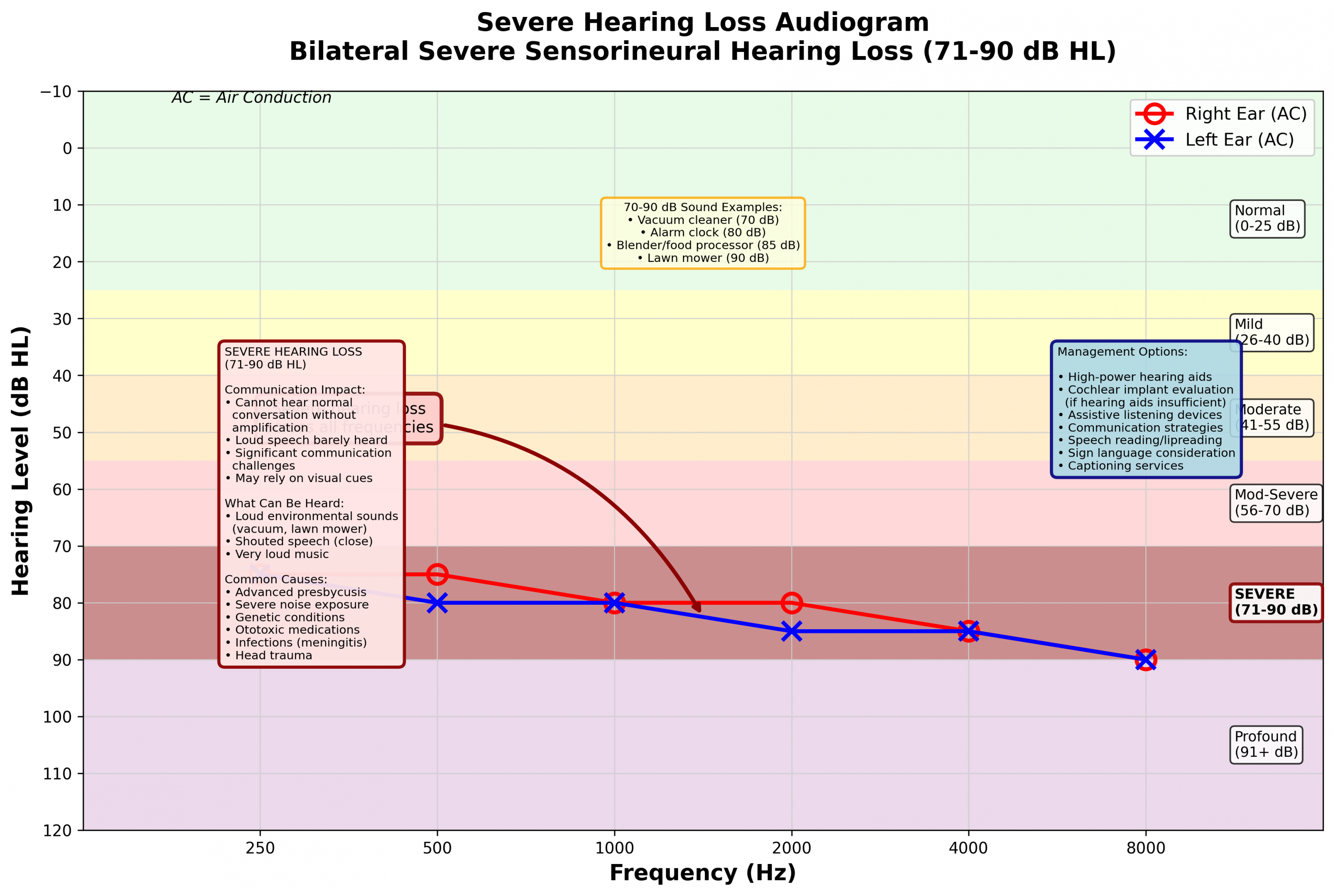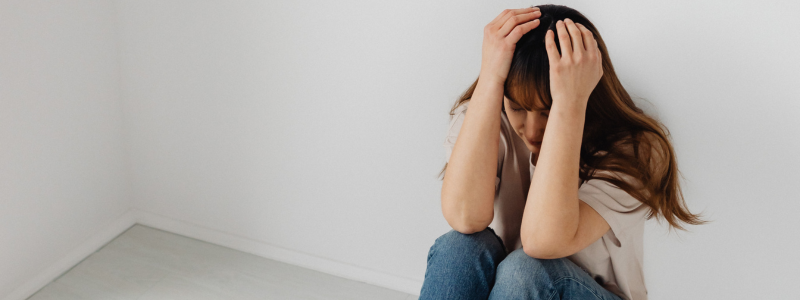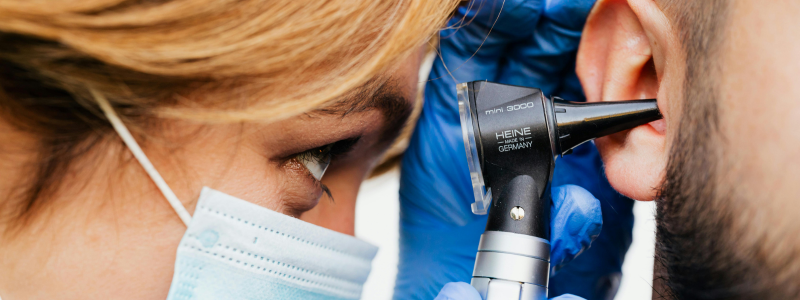
Head of Online Medical Content

Audiology Expert

What is Severe Hearing Loss?
Understanding the common causes, symptoms, and treatments
Last Hearing Aid UK Update:
Hearing is a key part of how we connect to the world
Hearing helps us engage in conversations, stay aware of our surroundings, and enjoy the richness of everyday life, from music and laughter to birdsong and busy streets.
When that connection fades, the effects can be significant. Among the more challenging types of hearing impairment is severe hearing loss.
In this article, we’ll take a closer look at what severe hearing loss is, how it affects daily life, what causes it, and the advanced solutions available to help people live full and connected lives.
So, what is severe hearing loss?
Severe hearing loss refers to a significant reduction in the ability to hear most everyday sounds. On an audiogram (a hearing test graph), severe hearing loss typically falls within the range of 71 to 90 decibels (dB).
This means a person may not hear sounds like doorbells, normal speech, phones ringing, or even traffic unless they’re amplified.
Key characteristics of severe hearing loss:
- Normal conversations are inaudible without hearing aids.
- People often rely on lip-reading or subtitles to understand speech.
- Background noise makes hearing even more difficult.
- It can affect both ears (bilateral) or just one (unilateral).
If you or someone you know struggles to hear most sounds even in quiet settings, it may be a sign of severe hearing loss.
Common signs and symptoms of severe hearing loss
Severe hearing loss isn’t always obvious at first. Over time, however, certain signs become more noticeable. In addition to the below, people may also experience emotional effects such as frustration, anxiety, or low confidence in social settings.
- Frequently asking others to repeat themselves
- Turning the TV or music volume up very high
- Avoiding phone calls or group conversations
- Difficulty hearing even when people speak loudly
- Feeling isolated or withdrawn in social situations
- Misunderstanding words, especially in noisy places
What causes severe hearing loss?
Severe hearing loss can result from a wide range of causes, sometimes gradually, sometimes suddenly. Common causes include:
Age-related hearing loss: A gradual decline in hearing due to changes in the inner ear over time. This is the most common cause of hearing loss in older adults.
Noise-induced hearing loss: Exposure to loud sounds — at work, during concerts, or through headphones — can damage the delicate hair cells in the inner ear.
Genetic factors: Hearing loss can run in families or be present from birth
Infections and illnesses: Conditions like meningitis, measles, or chronic ear infections can lead to permanent hearing damage.
Trauma or injury: A serious blow to the head or sudden pressure changes can cause hearing loss.
How is severe hearing loss identified?
Diagnosing severe hearing loss involves a comprehensive hearing assessment by an audiologist or hearing care professional.
The results help determine whether your hearing loss is sensorineural (related to the inner ear or nerve), conductive (related to the outer or middle ear), or mixed (a combination of both). The process includes:
Case history discussion: Understanding medical background and hearing difficulties.
Pure-tone audiometry: Measuring the softest sounds you can hear at various frequencies.
Speech testing: Assessing how well you understand spoken words.
Tympanometry or other tests: Checking the health of the eardrum and middle ear.

Treatment options for severe hearing loss
While severe hearing loss is often permanent, there are several highly effective solutions to improve hearing and communication. Such as:
Powerful hearing aids: Modern hearing aids for severe loss are far more advanced than ever before. They include:
- High-gain amplification (without distortion)
- Directional microphones for speech focus
- Feedback cancellation to prevent whistling
- Bluetooth streaming from phones, TVs, and more
- Rechargeable options for all-day convenience
- Behind-the-Ear (BTE) and Receiver-in-Canal (RIC) models with power receivers are often recommended for those with severe hearing loss.
Cochlear implants: If hearing aids don’t provide enough benefit, a cochlear implant may be a solution. These surgically implanted devices bypass damaged parts of the inner ear and directly stimulate the hearing nerve.
They are especially helpful for people with profound or unresponsive hearing loss.
Living and coping with severe hearing loss
Living with severe hearing loss is more than a physical challenge — it can affect mental health, relationships, and self-esteem. Fortunately, there are ways to manage these challenges:
- Stay connected: Avoid isolation by staying engaged with family and friends.
- Use visual cues: Like facial expressions and gestures, to help with understanding.
- Be open about your hearing loss: Let others know how they can best communicate with you.
- Take advantage of technology: Smartphones, captions, and apps can support communication.
- Seek support: Counselling, hearing loss support groups, and peer connections can make a big difference.
Conclusion
Severe hearing loss may change the way you interact with the world, but it doesn't have to stop you from living a full and rewarding life. With the right tools, professional care, and support, you can stay connected, confident, and in control.
If you suspect you or a loved one may be experiencing severe hearing loss, the first step is simple: book a hearing test with a qualified professional. The sooner you act, the sooner you can find the right solution and start hearing life again.
Why Choose Us?
- FREE Hearing Tests
- Best Hearing Aids and Prices
- FREE Aftercare for Life
- FREE Home Visits
- 200+ Local Audiologists
- 60 Day Money Back Guarantee
Severe hearing loss
This type of hearing loss is successfully treatable
If you or someone you care about is struggling to hear, you're not alone—and help is available. Take the first step by scheduling a hearing assessment with a qualified professional.
Early support can make a world of difference, not just in how you hear, but in how you connect, communicate, and thrive in everyday life.
The sooner you act, the sooner you can begin rediscovering the sounds that matter most.
Other hearing loss awareness articles you might like...
 Hearing aid stigma
Hearing aid stigma  How to tell if hearing loss is permanent or temporary
How to tell if hearing loss is permanent or temporary  Ways to keep your ears healthy
Ways to keep your ears healthy Our specialist service includes:
Do not spend hundreds of pounds without getting a second opinion from us.
Please call us on 0800 567 7621
 Not only are the prices great, but the service is fantastic! Many thanks to your team.
Not only are the prices great, but the service is fantastic! Many thanks to your team.What's included in our hearing aid prices?
Common FAQs about hearing aids and hearing loss
In general, any audiologist will always recommend to you the hearing aid model that best suits your needs. Here is a useful checklist to make sure that is the case.
- Audiologist's level of knowledge: The audiologist you have seen will hopefully have a wide knowledge of all available hearing aids; however, some will only be familiar with a small number of brands and, therefore, may not really be in a position to know which model is the best for you. It is OK to challenge their recommendation and ask them to justify why this particular brand is the one for you.
- Do research: Read about the hearing aid that was recommended. Does it seem like it will suit your lifestyle? Does it have more or fewer features than you need?
- Be aware of sales targets: Many high street retailers have specific tie-ins to a particular manufacturer/brand. The hearing aid they have suggested may still be the correct one for you, but do your research so that you know why they might have recommended it.
If you have significant hearing loss in both ears, you should be wearing two hearing aids. Here are the audiological reasons why:
Localisation: The brain decodes information from both ears and compares and contrasts them. By analysing the minuscule time delays as well as the difference in the loudness of each sound reaching the ears, the person is able to accurately locate a sound source.
Simply put, if you have better hearing on one side than the other, you can't accurately tell what direction sounds are coming from.
Less amplification is required: A phenomenon known as “binaural summation” means that the hearing aids can be set at a lower and more natural volume setting than if you wore only one hearing aid.
Head shadow effect: High frequencies, the part of your hearing that gives clarity and meaning to speech sounds, cannot bend around your head. Only low frequencies can. Therefore, if someone is talking on your unaided side, you are likely to hear that they are speaking, but be unable to tell what they have said.
Noise reduction: The brain has its own built-in noise reduction, which is only really effective when it is receiving information from both ears. If only one ear is aided, even with the best hearing aid in the world, it will be difficult for you to hear in background noise as your brain is trying to retain all of the sounds (including background noise) rather than filtering them out.
Sound quality: We are designed to hear in stereo. Only hearing from one side sounds a lot less natural to us.
Fancy some further reading on this topic? You can read about why two hearing aids are better than one in our article, hearing aids for Both Ears, here
For most people, the main benefit of a rechargeable hearing aid is simple convenience. We are used to plugging in our phones and other devices overnight for them to charge up. Here are some other pros and cons:
For anybody with poor dexterity or issues with their fingers, having a rechargeable aid makes a huge difference, as normal hearing aid batteries are quite small and some people find them fiddly to change.
One downside is that if you forget to charge your hearing aid, then it is a problem that can't be instantly fixed. For most, a 30-minute charge will get you at least two or three hours of hearing, but if you are the type of person who is likely to forget to plug them in regularly, then you're probably better off with standard batteries.
Rechargeable aids are also a little bit bigger and are only available in Behind-the-Ear models.
Finally, just like with a mobile phone, the amount of charge you get on day one is not going to be the same as you get a few years down the line. Be sure to ask what the policy is with the manufacturer's warranty when it comes to replacing the battery.
For most people, the answer is yes. But it's never that simple.
The majority of hearing problems affect the high frequencies a lot more than the low ones. Therefore, open fitting hearing aids sound a lot more natural and ones that block your ears up can make your own voice sound like you are talking with your head in a bucket. Therefore, in-ear aids tend to be less natural.
However, the true answer is we can't tell until we have had a look in your ears to assess the size of your ear canal, and until we have tested your hearing to see which frequencies are being affected.
People with wider ear canals tend to have more flexibility, also there are open fitting modular CIC hearing aids now that do not block your ears.
There is also the age-old rule to consider, that a hearing aid will not help you if it's sat in the drawer gathering dust. If the only hearing aid you would be happy wearing is one that people can't see, then that's what you should get.
Most people can adapt to any type of hearing aid, as long as they know what to expect. Have an honest conversation with your audiologist as to what your needs are.
Generally speaking, six or more. Unless it's none at all. The number of channels a hearing aid has is often a simplistic way an audiologist will use to explain why one hearing aid is better than another, but channels are complex, and it is really not that straightforward. Here are some reasons why:
Hearing aids amplify sounds of different frequencies by different amounts. Most people have lost more high frequencies than low, and therefore need more amplification in the high frequencies. The range of sounds you hear is split into frequency bands or channels, and the hearing aids are set to provide the right amount of hearing at each frequency level.
Less than six channels, and this cannot be done with much accuracy, so six is the magic number. However, a six-channel aid is typically very basic with few other features and is suitable only for hearing a single speaker in a quiet room. The number of channels is not what you should be looking at; it's more the rest of the technology that comes with them.
As a final note, different manufacturers have different approaches. One method is not necessarily better than any other. For example, some manufacturers have as many as 64 channels in their top aids. Most tend to have between 17 and 20. One manufacturer has no channels at all.
Manufacturer's warranties typically last between 2-5 years, depending on the brand and model, and cover defects in materials and workmanship. This includes repairs for component failures, electronic malfunctions, and manufacturing defects, but excludes damage from misuse, accidents, or normal wear. Most manufacturers also include loss and damage insurance for the first year.
We handle all warranty claims on your behalf, liaising with manufacturers and ensuring you get replacement devices quickly when needed. This comprehensive warranty coverage, combined with our lifetime aftercare, gives you complete peace of mind.
Our hearing tests are completely free, whether at our clinics or in your home. Unlike other providers who charge £30-£100 for home visits, we believe hearing healthcare should be accessible without financial barriers. Our comprehensive assessments include examination by a registered audiologist, audiogram results, and personalised recommendations.
All testing, future adjustments, and ongoing support are included at no extra cost. While NHS tests are also free, typical 6-week waiting periods often lead people to seek immediate private testing. We provide prompt, professional assessments that fit your schedule and budget.
Yes, we offer completely free home visits throughout the UK, and this service is included in our prices with no additional charges. Home visits are particularly valuable for people with mobility issues, busy schedules, or those who simply prefer the comfort and convenience of their own environment.
Our audiologists can conduct full hearing tests, fit hearing aids, and provide ongoing support in your home. This service sets us apart from many providers who either don't offer home visits or charge extra for them.
We can offer prices up to 40% lower than high street retailers because of our business model. As a network of 200+ independent audiologists, we don't have the massive overheads of large retail chains - no expensive high street premises, no sales targets pushing audiologists to sell the most expensive options, and no costly marketing campaigns.
However, we maintain the same buying power as the big chains because we purchase on behalf of our entire nationwide network. This means you get access to the same premium hearing aids with professional service, but at genuinely competitive prices.
We offer a comprehensive 60-day money-back guarantee, which gives you twice the industry standard time to properly assess whether your hearing aids are right for you. This extended period recognises that adjusting to hearing aids takes time, and your brain needs several weeks to adapt to the amplified sounds.
Unlike many providers who offer just 30 days, we believe 60 days gives you the confidence to test your hearing aids in all the situations that matter to you - from quiet conversations at home to busy restaurants and outdoor activities.
Other pages you might find useful
Ask the Experts
6 Morton Lane
Walkwood
Redditch
Worcestershire
B97 5QA
Latest Launch
When we refer to a product as 'Latest Launch', we mean it is the latest to be released on the market.
New
When we refer to a product as 'New', we mean that the product is the newest hearing aid model on the market.
When we refer to a product as 'Superseded', we mean that there is a newer range available which replaces and improves on this product.
Older Model
When we refer to a product as an 'Older Model', we mean that it is has been superseded by at least two more recent hearing aid ranges.
